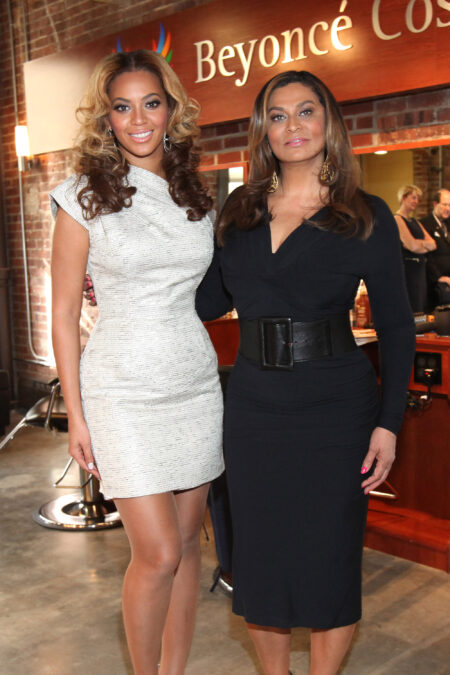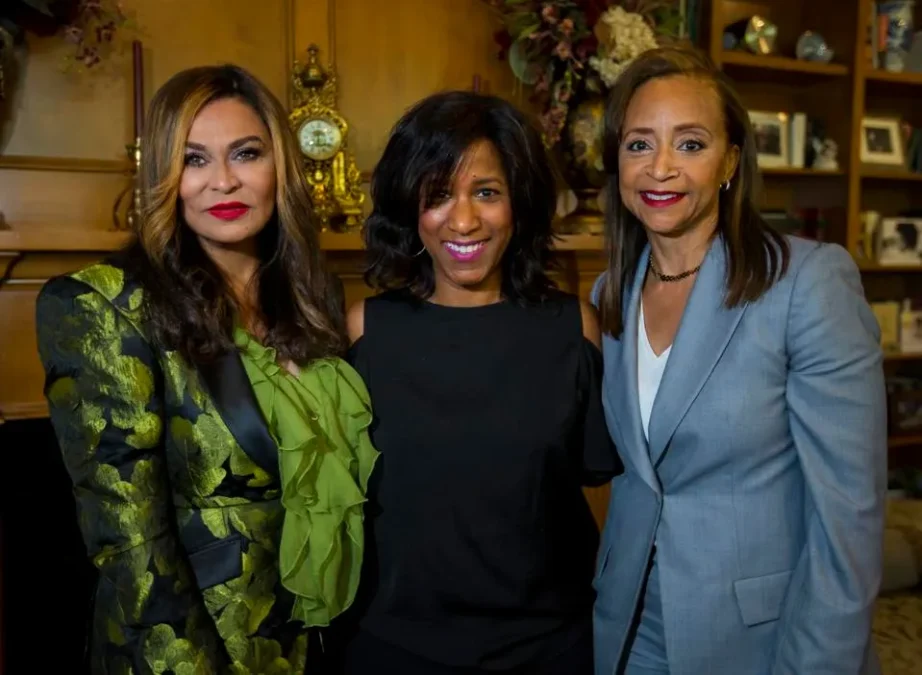Tina Knowles, Beyoncé’s mother about unemployment and resilience

New data from the US Labor Statistics Office. They reveal a worrying trend: unemployment among black workers is increasing, particularly among black women. In April 2024, the unemployment rate of black women amounted to 6.1 %, compared to 5.1 % in March, which represents an increase in a percentage point in just one month. In comparison, the unemployment rates of other groups remained stable at 3.3 % for white women and 4.6 % for Hispanics.
This disparity reflects more deep systemic barriers that black women continue to face in the labor market. Unlike them, other demographic groups are less likely to suffer the combined effects of racial and gender discrimination, a key factor that explains the growing gap in labor security.
The American fashion designer Tina Knowles (Texas, 71), mother of the singers Beyoncé and Solange Knowles tells us the challenges of black motherhood. But, he does it from a leadership, legacy and economic power perspective, as she herself has lived.
Black motherhood beyond the workplace
These inequalities do not end in the workplace. They extend to the home, where care responsibilities, often not recognized or remunerated, reduce long -term financial security. According to multiple economic studies, caregiver mothers can lose almost $ 300,000 in income throughout your life due to these systemic loads. This figure, although shocking, just begins to reflect the emotional, cultural and business contributions that black mothers perform daily. His work, paid and unpaid, has kept families, promoted communities and shaped industries.
Black motherhood is often presented through sacrifice narratives. However, black women are redefining it more and more as a strategy, an act of legacy and leadership construction. Despite economic difficulties, many black mothers have transformed the need into innovation, generating an impact far beyond home.
Tina Knowles and Powerful Maternity
One of these figures is Tina Knowles . In our second conversation (just before Mother’s Day), Knowles talked about personal and professional experiences that shape their new memoirs, Matriarch . Through entrepreneurship, maternity and healing stories, he offered a portrait of resilience and reinvention that positions black motherhood as something powerful and strategic.

In Matriarch you write about combing to keep your family and make costumes until late at night, as love work that contributed to building the family legacy. How did you perceive those moments at the time? Were acts of necessity, opportunity or both?
Each career change that I have had has been completely natural and arose to see it as an opportunity. And I think they are two different things: on the one hand, combing to support my family’s dream was something that I did by necessity. On the other hand, designing the costumes was a great opportunity to change career, so, personally, I don’t know if I would need to rethink it.
From the launch of your lounge to the foundation of House of Deréon, you have made entrepreneurship a family legacy. How did the fact of owning a business in your identity influence as a mother, and how motherhood influenced your identity as a businesswoman?
Entrepreneurship formed me as a mother, giving me trust and the certainty that I could financially take care of my children. Being a mother motivated me to succeed … to leave them a legacy, giving them an example of a solid labor ethics.
Caredary mothers lose almost $ 300,000 in income throughout their lives due to systemic inequalities and care responsibilities. What conversations should black families have on financial independence, legacy planning and generational heritage, especially for mothers?
It is very important that you spend time learning about financial planning. I remember that, being very young and just having my first child, a friend who became a financial planner taught me what I should do to create financial security for my children: as a fund for the university, make a will, life income for retirement, emergency funds; All these are things that we must learn and put into practice. It does not cost much and is useful when they grow and decide to go to college or look for other professional opportunities. I even encouraged that friend to write a book entitled “Royal lives, real money”, a simple guide on financial planning and generational heritage.

Book «Real lives, real money», at Rufus and Yvonne Cormier’s house in River Oaks. Saturday, July 29, 2017, photo of Annie Mulligan/ Getty Images.
Black women are overrepresented in positions with low wages, minimum low and little flexibility, which often limits their ascent. Based on your experience on creative and corporate spaces, how can black mothers stay visible, with chances of promotion and empowered in systems that are not designed for them?
Black mothers must be aware of taking their space, expressing their contributions more openly and not feeling bad for not being recognized or seen. In general, there must be unity among black women and we must support each other with greater determination. Union is strength.
You shared your experience with breast cancer with incredible transparency. For many black women, “being strong” becomes a way to survive. How do you achieve a balance between grace and determination, and how is recovery when strength is expected, but rest is required?
Knowles: On my way to healing, I learned that saying “no” is a complete phrase. It was important that I concentrated on taking care and resting what is necessary to heal, without feeling guilty.





